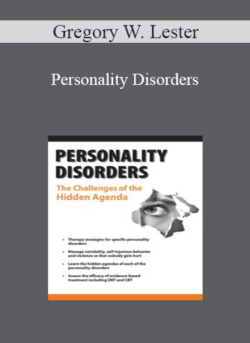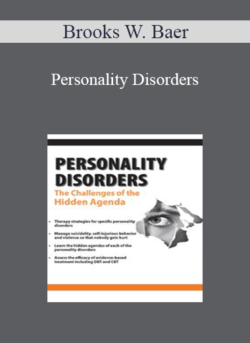Total Size:Digital products: Get the download link at Account or directly via email.Support: LifetimeDownload: Unlimited Of Course 2-Day: CBT Toolkit for Depressed, Anxious and Suicidal Children and Adolescents – David M. PrattPurchase 2-Day: CBT Toolkit for Depressed, Anxious and Suicidal Children and Adolescents – David M. Pratt courses at here with PRICE $149.99 $72When purchasing 2-Day: CBT Toolkit for Depressed, Anxious and Suicidal Children and Adolescents – David M. Pratt course, You can get it with the LIFETIME SUPPORT and UNLIMITED DOWNLOAD.2-Day: CBT Toolkit for Depressed, Anxious and Suicidal Children and Adolescents – David M. Pratt“I know that it can be difficult to engage children and adolescents in the treatment process. These kids are often very “reluctant doers”. Reaching this population and engaging them in meaningful therapy is quite a challenge indeed. To improve treatment, I developed my own structured therapeutic activities and wasn’t sure what was going to happen when my co-therapist and I introduced them, but we thought it was worth a try. We were surprised, and relieved, to see kids responding so well. They came to group, participated in the activities, and began to self-disclose intimate details of their lives and struggles. By using the evidence-based, structured, therapeutic activities outlined in this program, you can present treatment in a more relatable manner and help kids learn practical skills to manage depression, anxiety, and self-harm or suicidal urges.”David M. Pratt, Ph.D., MSWThis training parallels Dr. Pratt’s recently published book, CBT Toolkit for Depressed, Anxious and Suicidal Children and Adolescents (PESI, 2019) and brings to life over 100 structured therapeutic activities you can readily use. Don’t miss this opportunity to enhance your clinical skills and provide the high-quality treatment children and adolescents both need and deserve.Integrate “First and Second Wave” CBT skills with more recent “Third Wave” (mindfulness) advances with youth.Formulate strategies to develop a therapeutic alliance that engage children and adolescents in easy, creative, and effective therapeutic cognitive behavioral activities.Practice effective collaboration with youth and parents toward targeted, mutually defined treatment goals.Apply, practice, and integrate evidence-based CBT techniques to modify and change maladaptive behaviors.Utilize CBT psychoeducation to elicit “buy in” from most difficult clients.Analyze, challenge, and replace negative self-talk, thoughts, assumptions and core beliefs.Construct practical skill building worksheets and structured therapeutic activities to clarify and teach complex CBT skills for child and adolescent depression, anxiety, and self-harm prevention.Employ fundamental and advanced evidence-based CBT skills to help your young clients manage depression, anxiety, and self-harm behaviors.Develop a deep understanding of recent advances in the neuro-science of stress and how to re-train the distressed brain.Evaluate exposure therapy techniques including imagino and in-vivo exposure to resolve anxiety.Utilize evidence-based suicide risk assessment, safety planning to prevent suicide and self-harm behavior.Assess effective parental involvement in the treatment process while maintaining client confidentiality to mitigate depression, anxiety, and self-harm risk.Therapist Guidelines: Keys to SuccessPsychoeducation: Knowledge is powerTherapy tips: Anxiety and depressionIntroducing CBT to the client and parentsLimitations of the research and potential risksGoal Setting and Motivational Counseling: Are You and Your Client Working Together?Why goals are importantSMART goalsAssessing the consequences of anxiety and depressionPros and cons analysisMindfulness: Calming the Emotional Brain to Utilize the Rational MindAmygdala hijack & the neuroscience of stressThe effects of adrenalin & cortisol on the bodyMindfulness meditation & brain functioningTypical stress response vs. desired stress responseMindfulness skills for children & adolescentsMindfulness practice & monitoringMood Monitoring: How to Help Kids Be Aware of Their FeelingsFeeling awareness gamesFeelings and trigger situationsSubjective units of distress scale (SUDS)Daily and weekly mood monitoringBehavioral Activation: Let’s Get Active Again!The CBT paradigm: Behavioral activation and depressionBehavior monitoring: Typical school & weekend dayLife values and activitiesIdentifying and covercoming barriers to healthy activitiesConduct a behavioral activation experimentCognitive Processing: Helping Kids Tune into Their ThoughtsThe CBT paradigm and why thoughts are importantDifferent types of stinking thinkingIdentify positive, realistic thoughtsIdentifying & monitoring my stinking thinkingCognitive Restructuring: Staying Positive Despite ChallengesDefine cognitive restructuringAmbiguous situations…What’s really going on?Positive Psychology tools to fight depressionSocial Skills Training: Teaching Essential Social SkillsTeaching effective problem solvingAppropriately using assertivenessEffective communication skillsPractice non-verbal communicationConversation and “chit-chat” skillsAnxiety Treatment & Exposure Therapy: Helping Clients Face Their FearsSomatic management skillsCreate an anxiety hierarchyIdentifying & correcting “catastrophic” stinking thinkingSocial skills to help manage anxietyDevelop a “Game Plan” to help face anxietyImagino ExposureIn-Vivo ExposureSpecial Topics in Treating Anxiety: Applying Exposure Therapy to Specific Anxiety ProblemsSocial AnxietySeparation AnxietyGeneralized Anxiety Disorder and chronic worrySomatic Symptom DisorderManage Self-Harm and Suicidal Urges: Evidence-Based Practices to Prevent Suicide and Self HarmConduct an evidence-based suicide risk assessmentDevelop an evidence-based suicide prevention planUse behavioral chain analysis to prevent future self-harmCreate a hope boxEmotional distress tolerance skills to resist self-harm urgesFuture time imagingUsing acceptance and commitment to improve happinessProblem-solving in a crisisCBT “coping card” for self-harm preventionParent Involvement: Parents are Your Clients Too!Parent involvement in the evaluation process and treatment planConfidentiality considerationsFamily behavioral activation, problem solving, & contractsParent support & stress managementAre you interested in? depressed meme; depressed meaning; depressed synonym; depressed adjectives; depressed after drinkingPurchasing 2-Day: CBT Toolkit for Depressed, Anxious and Suicidal Children and Adolescents – David M. Pratt course now, You can get it with the LIFETIME SUPPORT and UNLIMITED DOWNLOAD.Purchase 2-Day: CBT Toolkit for Depressed, Anxious and Suicidal Children and Adolescents – David M. Pratt courses at here with PRICE $149.99 $72

 Gregory W. Lester – Personality Disorders: The Challenges of the Hidden Agenda
₹6,806.00
Gregory W. Lester – Personality Disorders: The Challenges of the Hidden Agenda
₹6,806.00
 Brooks W. Baer – Personality Disorders: The Challenges of the Hidden Agenda
₹6,806.00
Brooks W. Baer – Personality Disorders: The Challenges of the Hidden Agenda
₹6,806.00
2-Day: CBT Toolkit for Depressed, Anxious and Suicidal Children and Adolescents – David M. Pratt
₹11,952.00



